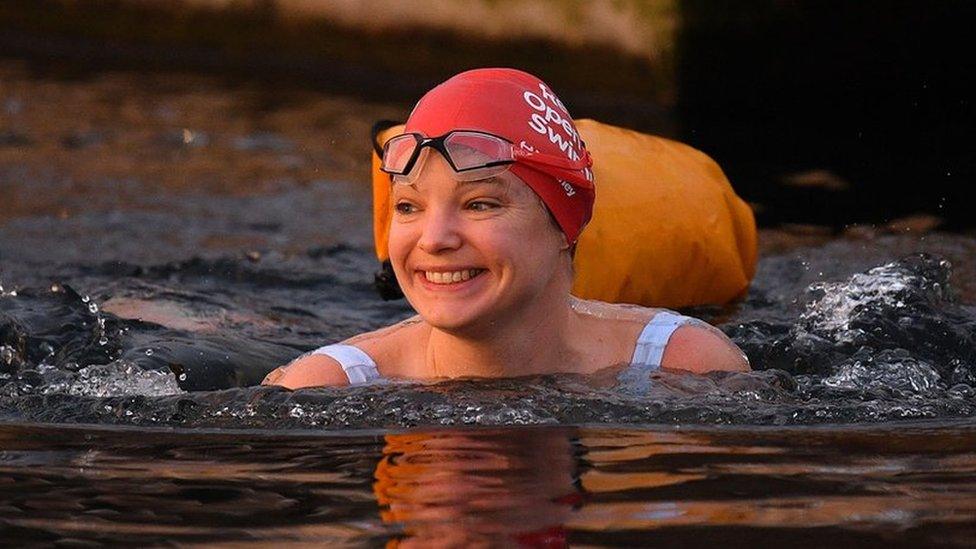River Conwy: Wild oysters move to 'nurseries' to raise numbers
- Published
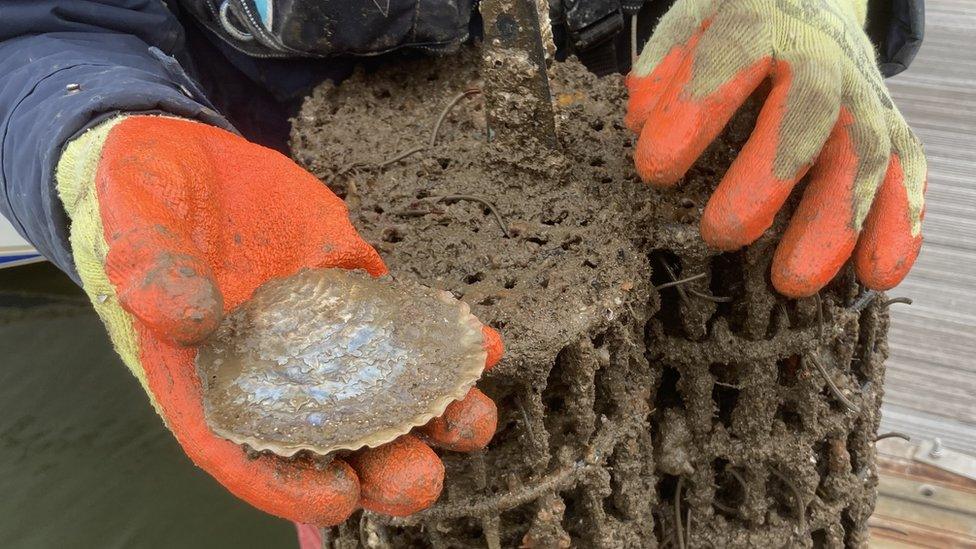
The three year project to increase the number of wild native oysters in Britain will cost around £1.2m
Scientists reintroducing oysters into a river are preparing to move thousands from "maternity wards" to "nurseries".
The three-year project on the River Conwy is part of a plan to increase the number of wild oysters around Britain.
The project is costing about £1.2m, and it is hoped they will filter and clean the water they live in.
Oysters are sometimes called "ocean superheroes" because the beds they live in form a habitat for other species.
More than 1,000 oysters have already been placed in special cages in Conwy marina and Deganwy marina, where they've begun to produce tiny babies, called larvae.
Now conservationists are preparing to build an underwater reef where they can grow to full size.
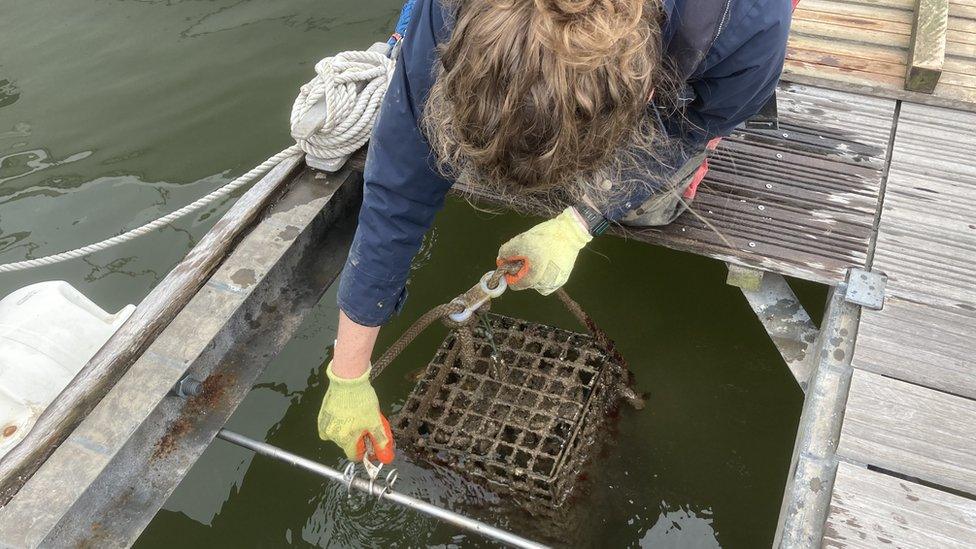
Baby oysters have been collected from special cages ready to be moved to an underwater reef
The wild oysters project is a partnership between The Zoological Society of London, Blue Marine Foundation and British Marine.
The partners have received funding from the People's Postcode Lottery to release new populations of native oysters in Conwy, the Firth of Clyde and Tyne & Wear.
Ecosystem engineers
Maria Hayden-Hughes, Welsh project officer, said: "The oysters have done really well since we first put them in place under the marina boardwalks.
"We've seen new shell growth and we've found that they've been spawning, releasing oyster larvae into the sea," she said.
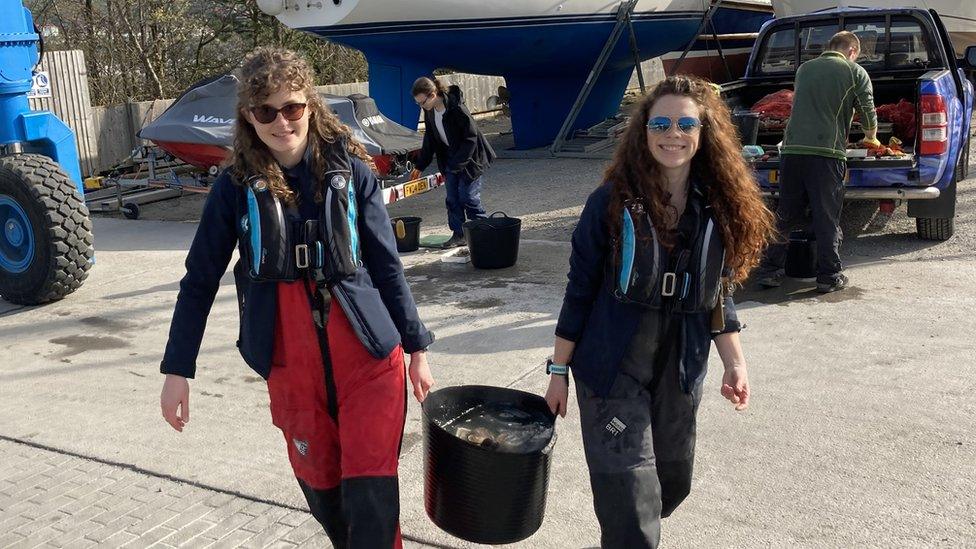
Maria Hayden-Hughes (left) and Celine Gamble, of the Zoological Society of London, are hoping to improve the UK's native oyster population
A reef will now be built from old oyster shells and stones on the seabed to improve the environment for young oysters.
"Oysters are ecosystem engineers: healthy oyster beds help other wildlife thrive, including providing nursery grounds for important seafood species such as seabass, bream and edible crabs," she added.
"They also help clean our coastal waters because they can filter up to 200 litres of water each day - over a bathtub of water per oyster."
Scientists have been monitoring the water around to see if having them there has already made a difference.

Welsh oyster boats used to land a reported 8,000 oysters daily in the 1800s
Celine Gamble, of the Zoological Society of London said native oysters used to be found around the coast of Wales in large numbers.
But over-fishing, changes in water quality, and disease over two centuries has seen them virtually disappear.
"Wales once had a prolific fishery for the native oyster which provided a vital food source to the local coastal communities and contribution to the Welsh economy," she said.
"The Mumbles or Oystermouth fishery was the largest in Wales, supporting 400 fishers across 188 boats.
"In its heyday in the mid-1800s, Welsh oyster boats reported landing 8,000 oysters daily, but up to 15,000-20,000 oysters in some areas."
The project began in Wales in 2021 and is due to last three years.
Conservationists hope that by the end of the three years, a population of native oysters will be able to survive in the River Conwy without need for them to intervene.

EXPLORE ANGLESEY'S RICH WILDLIFE: Iolo explore Wales’ biggest island by land and sea
ICONIC WELSH PEOPLE, PLACES AND THINGS: Kiri unearths the best clips from the BBC Wales archive

- Published5 August 2020
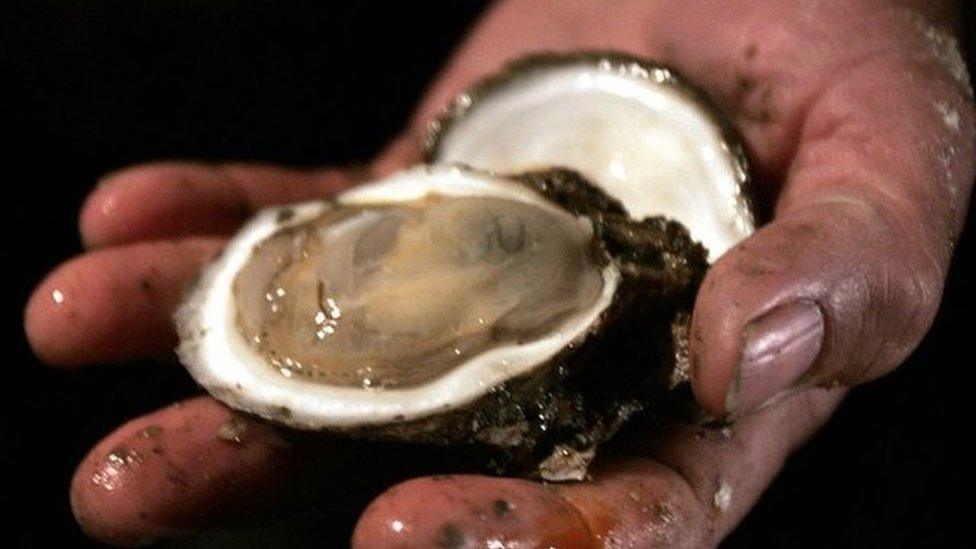
- Published31 March 2021
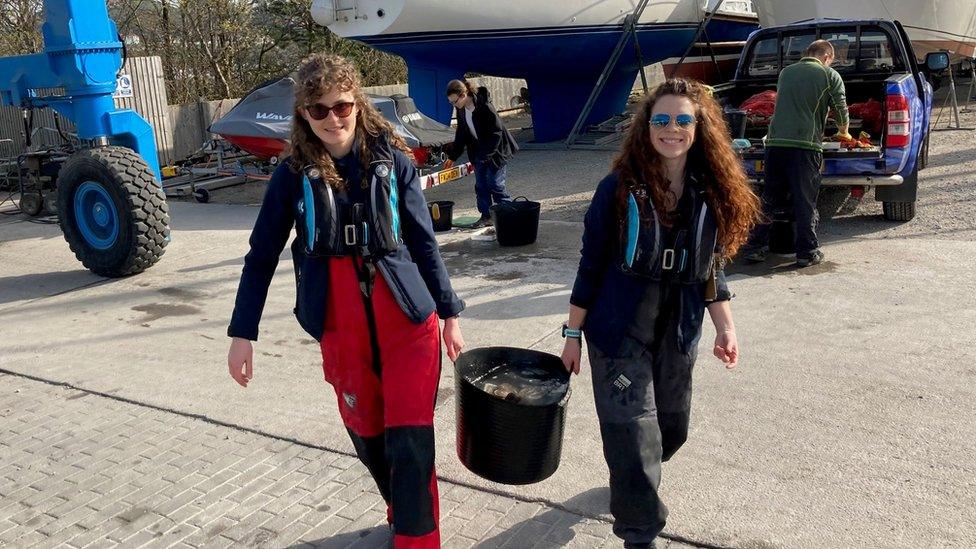
- Published13 January 2022
